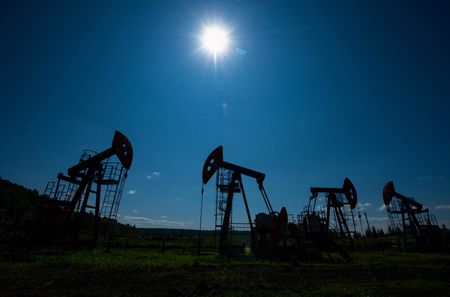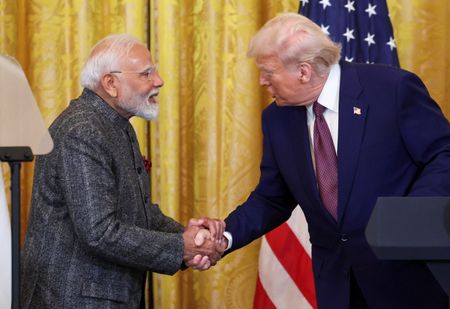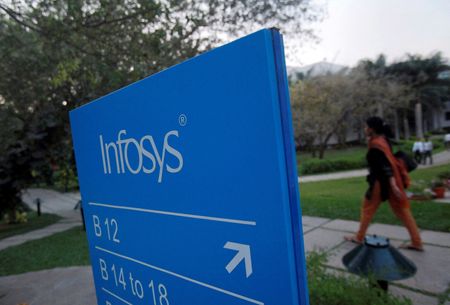By Robert Harvey
LONDON (Reuters) -Oil prices were stable on Thursday as market traders prepared for a potential halt to India’s Russian oil imports, which could boost demand for supplies from elsewhere.
Brent crude futures rose 54 cents, or 0.87%, to $62.45 a barrel by 1135 GMT. U.S. West Texas Intermediate (WTI) futures climbed 56 cents, or 0.96%, to $58.83.
The contracts stabilised after touching their lowest since early May in the previous session on U.S.-China trade tensions.
U.S. President Donald Trump said Indian Prime Minister Narendra Modi had pledged on Wednesday that the country would stop buying from Russia, which is India’s top supplier, accounting for about one-third of its oil imports.
Some Indian refiners are preparing to cut Russian oil imports, with expectations of a gradual reduction, three sources familiar with the matter told Reuters.
“This is a positive development for the crude oil price as it would remove a big buyer (India) of Russian oil,” said Tony Sycamore, a market analyst at IG.
However, India said on Thursday that its two main goals were to ensure stable energy prices and secure supply, making no reference to Trump’s comments.
Russia said it was confident that its energy partnership with India would continue.
Meanwhile, Russian products supply has been hampered by persistent Ukrainian drone strikes on its refineries.
Russia’s energy minister said Russian refineries will postpone planned maintenance to saturate the market on Wednesday.
Ukraine attacked the Saratov refinery overnight, while Rosneft’s Ufaneftekhim halted crude processing in one of its four crude units after an attack on Wednesday.
“The plummeting availability of Russian products and crude oil ought to set a floor under the market. This year’s low of $58.40 per barrel for Brent, reached in April, may well prove a cumbersome task to breach,” said PVM analyst Tamas Varga.
U.S. Treasury Secretary Scott Bessent also said on Wednesday that he told Japanese Finance Minister Katsunobu Kato that the Trump administration expects Japan to stop importing Russian energy. Japan is not a major importer of Russian crude.
Elsewhere, the British government announced new sanctions on Wednesday, directly targeting Russia’s Rosneft and Lukoil – two of the world’s biggest energy companies.
The sanctioned entities include four oil terminals, the private refiner Shandong Yulong Petrochemical in China, 44 tankers in the “shadow fleet” transporting Russian oil, and Nayara Energy Limited, a Russian-owned refinery in India.
(Reporting by Robert Harvey in London, Katya Golubkova in Tokyo and Sam Li in Beijing, Editing by Alexander Smith)











